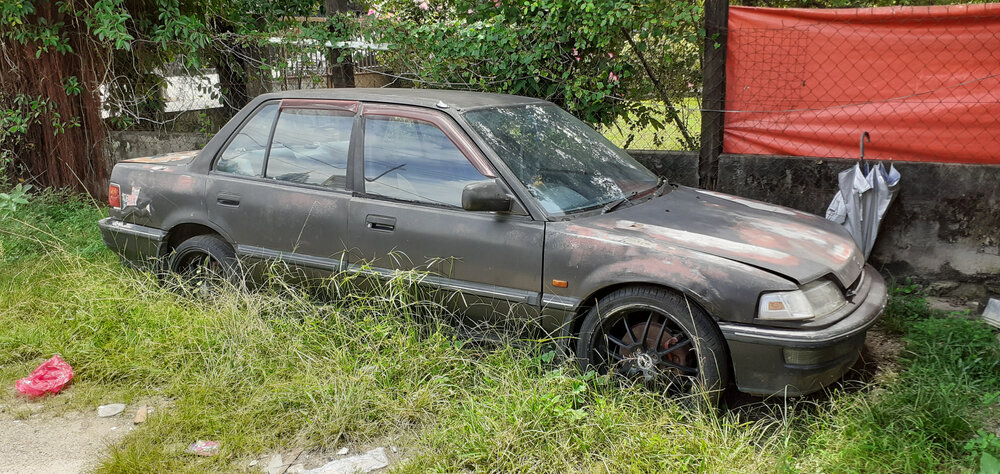The Economic and Ecological Benefits of Reusing Junk Automobiles
Reusing scrap automobiles provides various economic and ecological advantages that expand well beyond waste decrease. These benefits underscore the multifaceted value of reusing junk cars, yet there are further elements to take into consideration when assessing its full influence.
Reducing Garbage Dump Waste
Minimizing land fill waste via the recycling of junk cars and trucks plays an essential duty in environmental preservation. Effective recycling procedures can dramatically decrease the volume of waste that finishes up in land fills when cars reach the end of their life cycle. Junk automobiles, if not correctly recycled, contribute to the growing problem of land fill overcapacity, worsening environmental degradation and potentially infecting dirt and groundwater with unsafe materials such as oil, gas, and heavy metals.

Additionally, the reusing process minimizes the negative effects of automotive waste on biodiversity. Land fills are notorious for interrupting neighborhood ecosystems, and decreasing the increase of junk cars and trucks helps maintain all-natural environments. Ultimately, reusing junk autos is a strategic method that cultivates sustainable waste monitoring, straightening with more comprehensive ecological objectives.
Conserving Natural Resources
Along with mitigating landfill overcapacity, recycling junk cars and trucks plays a considerable role in conserving natural deposits. The automotive industry is greatly dependent on numerous steels, plastics, and various other products that require comprehensive mining and handling. By recycling junk automobiles, we substantially minimize the need for resources, therefore curbing the environmental deterioration linked with mining activities. Reusing steel from old lorries decreases the need for iron ore extraction, which in turn lowers energy consumption and greenhouse gas discharges.
Furthermore, the process of reusing cars and truck elements such as copper, light weight aluminum, and lead is far much less energy-intensive than producing these materials from virgin resources. This power financial savings equates straight right into lowered nonrenewable fuel source usage and lower carbon footprints (Fort collins we buy junk cars). In addition, by redeeming and repurposing materials, we extend the lifecycle of non-renewable resources, ensuring they stay offered for future usage
Moreover, recycling automotive liquids like antifreeze, oil, and transmission liquid avoids unsafe compounds from polluting soil and water resources. Via organized recycling efforts, these fluids can be detoxified and recycled, promoting a circular economy and further reducing the stress on natural deposits. Hence, reusing scrap vehicles provides a complex method to preserving our earth's important all-natural possessions.
Developing Work Opportunities
The recycling of scrap automobiles not just profits the atmosphere yet also boosts economic development by producing work chances. This expanding market supplies a wide range of employment potential customers, ranging from the preliminary collection and transportation of old vehicles to the complex procedures of dismantling, arranging, and repurposing the different components.

The proliferation of reusing plants better amplifies the task market, demanding functions such as engineers, machine operators, and top quality control specialists to guarantee and manage the advanced equipment conformity with ecological laws. Also administrative settings, such as sales, advertising, and customer care, see a rise as the sector unwanted car removal increases.
Decreasing Production Costs
By including recycled products from junk cars, suppliers can substantially reduce manufacturing expenses. The energy needed to refine recycled materials is considerably much less than that needed to create new products from scratch.
Additionally, the recycling process aids streamline the supply chain by giving a stable increase of products that are easily offered and frequently more affordable than recently extracted resources. These expense effectiveness are specifically vital in a very affordable sector like automotive production, where margins can be razor-thin. Furthermore, the recycling of junk cars and trucks assists reduce the unstable pricing of raw products, enabling suppliers to far better forecast and control their manufacturing spending plans.
Offering Budget Friendly Car Components
When junk vehicles are reused, the availability of inexpensive automobile parts significantly increases, benefiting both consumers and service center. Recycled automobile components are typically marketed at a fraction of the price of brand-new components, giving an affordable alternative for car owners and technicians. This affordability can be essential for individuals that may not have the financial ways to buy brand-new elements, allowing them to keep their lorries in you can check here functional and risk-free problem.
Repair shops likewise acquire from this boosted accessibility of cost effective components. By sourcing recycled parts, these organizations can reduce their operational expenses, which can be handed down to customers with reduced solution costs. This, consequently, can cause higher consumer contentment and loyalty, as customers value the price financial savings without compromising on quality.
Furthermore, the quality of recycled parts has enhanced considerably over the years, thanks to advancements in reusing procedures and quality control steps. Lots of recycled parts go through rigorous testing to guarantee they fulfill industry criteria, supplying reliability equivalent to brand-new parts - sell car to junkyard. By providing a top notch and economically viable option, the recycling of junk cars and trucks plays a crucial duty in sustaining both the automobile repair work market and the more comprehensive customer market
Conclusion
Recycling scrap cars provides significant economic and environmental advantages by substantially lowering garbage dump waste and saving natural resources. Generally, the recycling of scrap cars supports both financial growth and sustainability goals.
Recycling junk cars and trucks offers various economic and environmental benefits that extend well beyond waste reduction. Junk cars and trucks, if not properly recycled, add to the expanding problem of garbage dump overcapacity, intensifying ecological destruction and possibly contaminating dirt and groundwater with harmful materials such as oil, gas, and heavy metals.
By reusing junk you could check here autos, we dramatically minimize the demand for raw products, thereby suppressing the environmental degradation connected with mining tasks.When junk cars and trucks are reused, the accessibility of inexpensive auto parts considerably raises, profiting both customers and repair stores.Recycling junk vehicles presents considerable financial and ecological advantages by dramatically reducing garbage dump waste and preserving all-natural sources.